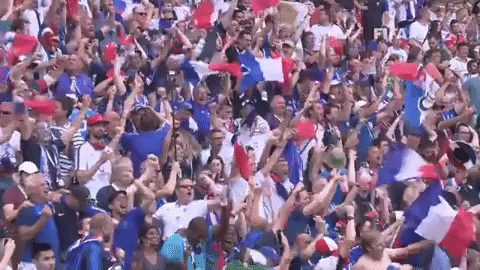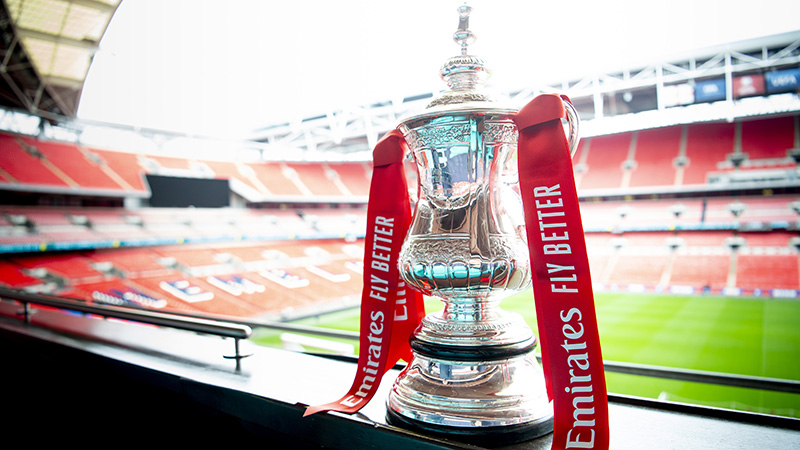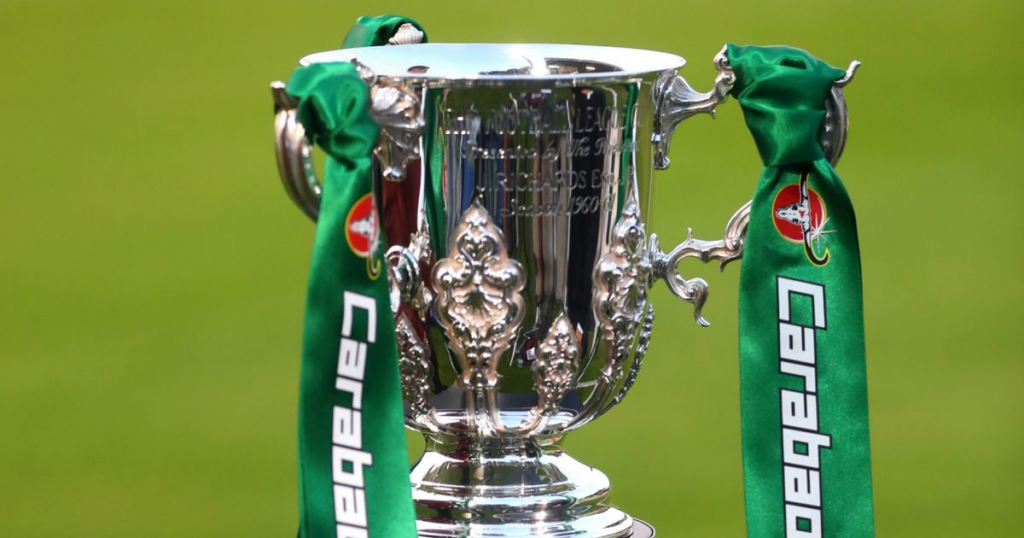Knock-out football has led to some of the most exciting matches in history from World Cup Finals to the Champions League. Whereas league football is more of a marathon, knock-out cup competitions represent more of a sprint where a single moment of greatness or a mistake can propel your team to victory or defeat. It’s winner takes all. As much as winning the League after a long, hard fought season will always be the biggest achievement in football, there’s nothing quite like that magical moment when you know your team is about to win a cup final.

Across the professional and amateur set-up in English football there are countless knock-out competitions at every level of the game, but there are two that capture the attention of the nation – the FA Cup and the League Cup.
With these two competitions being the two biggest and most respected in English football, what are the key differences between them and why are they loved so much?
FA Cup vs League Cup
What’s the difference between the FA Cup and the League Cup? The Football Association (FA) Cup is the oldest football competition in the world, first being contested in 1871. The FA Cup is open to any club down to Level 10 of the English Football League as long as they meet certain criteria. All clubs in the Premier League, Championship, League One and League Two are automatically eligible. The League Cup was first contested in 1960 and only the 92 teams from the top 4 tiers of the English Football League are eligible for entry.
FA Cup
The FA Cup is the oldest national football competition in the world having first been played during the 1871/72 season. In the very first FA Cup final, south-east based Wanderers FC beat the British Army’s Royal Engineers AFC 1-0 in front of 2,000 fans at the Kensington Oval in London.
The FA Cup truly is a fans favourite and is a competition famed for smaller clubs going up against Premier League giants. In its current structure, the competition is open to any eligible club down to Level 10 of the English football league system. This covers teams from the Premier League right down to semi professional teams in leagues such as the Combined Counties League Division One, South West Peninsula League Premier Division East, or the West Midlands Regional League. It’s the only competition where it plausible to have the likes of amateur outfit Ascot United FC paired up against Manchester United or Chelsea.
The stories of the underdogs succeeding against the odds is what makes the competition so exciting. Whether it’s the victory against the odds for the likes of Wigan with their triumph over Manchester City in the 2013 Final, Portsmouth’s odds-defying victory in 2008, or Wimbledon’s ‘Crazy Gang’ led on the field by none other than football’s hard-man Vinnie Jones and their victory over a dominant Liverpool, the FA Cup gives all teams an equal opportunity to succeed.

These fairy-tale stories aren’t solely reserved for those teams that reach the final. The magic of the cup, as it is affectionately known, takes place during every round up and down the country and there has been plenty of fairy-tale moments over the years, such as bottom-of-the-fourth-tier Wrexham’s 2-1 victory over league champions Arsenal in 1992. With Arsenal leading 1-0 and appearing to cruise through in a relatively straight forward game, 37-year-old Mickey Thomas scored a 25-yard free kick screamer past the legendary David Seaman with 10 minutes remaining in the game. With that the momentum switched and Wrexham sensed the biggest scalp of them all. A mere two minutes later, Wrexham achieved the unthinkable with striker Steve Watkin poking the ball in the net in front of the 13,343 strong crowd at the Racecourse Ground in Wrexham. Upon the final whistle, a full-scale pitch invasion ensued with the elated fans. It is a game that has gone down as one of the FA Cup’s greatest “giant killings” of all time.
But when it comes to FA Cup victories and titles, no team in history has more success than Arsenal who have lifted the coveted trophy a record 14 times.
League Cup
The League Cup, officially known as the EFL Cup, differs to the FA Cup slightly in the fact that it is reserved for the 92 teams that make up the four tiers of the Football League – the Premier League, Championship, League One and League Two. Compared to the length and breadth of the FA Cup, the EFL Cup only consists of seven rounds with teams competing in Europe entering in the third round, Premier League teams entering in the second round, and all other teams kicking off in the first round.
The League Cup is generally regarded as less historically important compared to the FA Cup. Being 150 years old, the FA Cup was born in a time where there were no unified leagues, and a cup-run represented the only means for teams in different parts of the country to meet. On the other hand, the League Cup started in 1960 as a means to rekindle attendance figures at football matches. To offer a bit of difference and excitement, the League Cup introduced weekday evening matches under the lights.

Just like with the FA Cup, managers of the bigger teams often give younger players a chance in the League Cup, especially in the early rounds, to gain more experience. A big reason for this apparent nonchalant attitude towards the early rounds of the League Cup for managers is the commercial prize on offer. To put it into perspective, the difference between each Premier league place is roughly £2million (in the 2018/19 season Manchester City received a £38million merit payment for winning the league with Liverpool receiving £36million for finishing second), the prize for winning the FA Cup currently stands at £1.8million, whereas the winning prize for claiming the League Cup title stands at £100,000. That’s a mere 5% compared to claiming one spot higher up in the Premier League. Based on this, it comes as no real shock that Premier league managers, therefore, use the League Cup as an opportunity to give younger players a chance and rest the first team squads for the league.
But for many this is hugely exciting – the chance for a manager to blood the youth and potentially unlock the team’s next superstar. Recent players to have made their mark in the Cup include the likes of Manchester United’s Mason Greenwood and Liverpool’s Harvey Elliott who has since gone on loan to Blackburn where the 17-year-old has notched up 4 goals and 7 assists in 19 games for the Championship club.
Another point of note that separates the League Cup from the FA Cup is the number of different names the League Cup has had due to sponsorship. Currently being sponsored by energy drink company Carabao, the League Cup has officially gone by the name of the Carabao Cup since 2017. Prior to this, it has been known as the Capital One Cup (2012-2016), Carling Cup (2003-2012), Worthington Cup (1998-2003), Coca-Cola Cup (1992-1998), Rumbleows Cup (1990-1992), Littlewoods Challenge Cup (1986-1990), and the Milk Cup (1981-1986). Because of this change, unlike the FA Cup, the League Cup hasn’t had a consistent identity for fans to build a connection with.
Relevancy
With the commercial landscape of football and the eye-watering sums of money at play in the Premier League, it makes it very difficult for any domestic cup competition to hold its own.
The magic of the FA Cup will always hold itself within the UK because of its ability to give a platform to much smaller clubs and generate stories that live long in the memory. The EFL Cup, or League Cup, on the other hand, does not quite strike the same affinity with fans, which could eventually be to its detriment.
A cup run is, however, important in more ways than one. For the fans it gives them something to hold onto and memories to cherish, for struggling teams it offers an opportunity to rebuild a winning mentality, for smaller teams it offers a potentially lucrative payday against the bigger clubs, and for the bigger teams it offers a way to continually cement that dominance.
